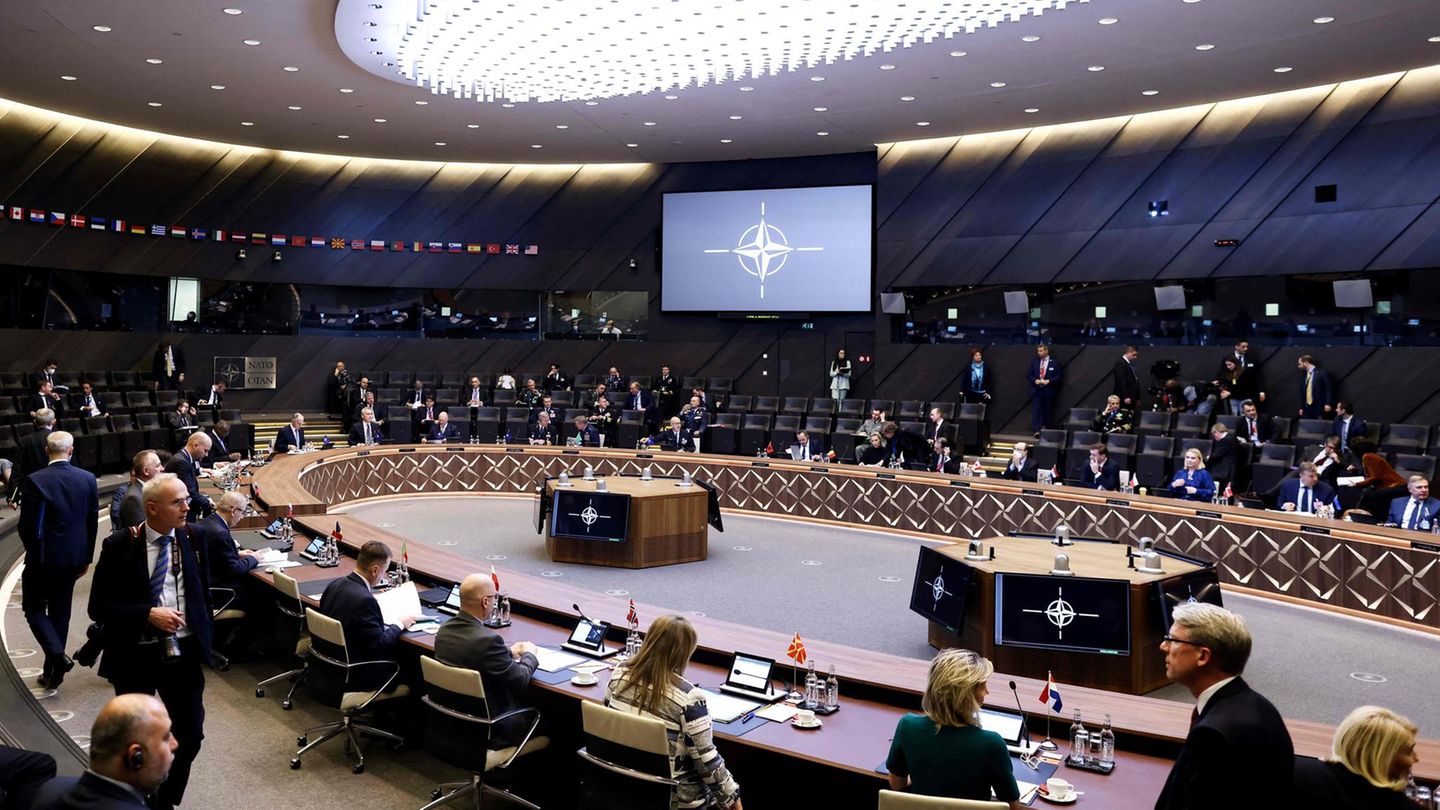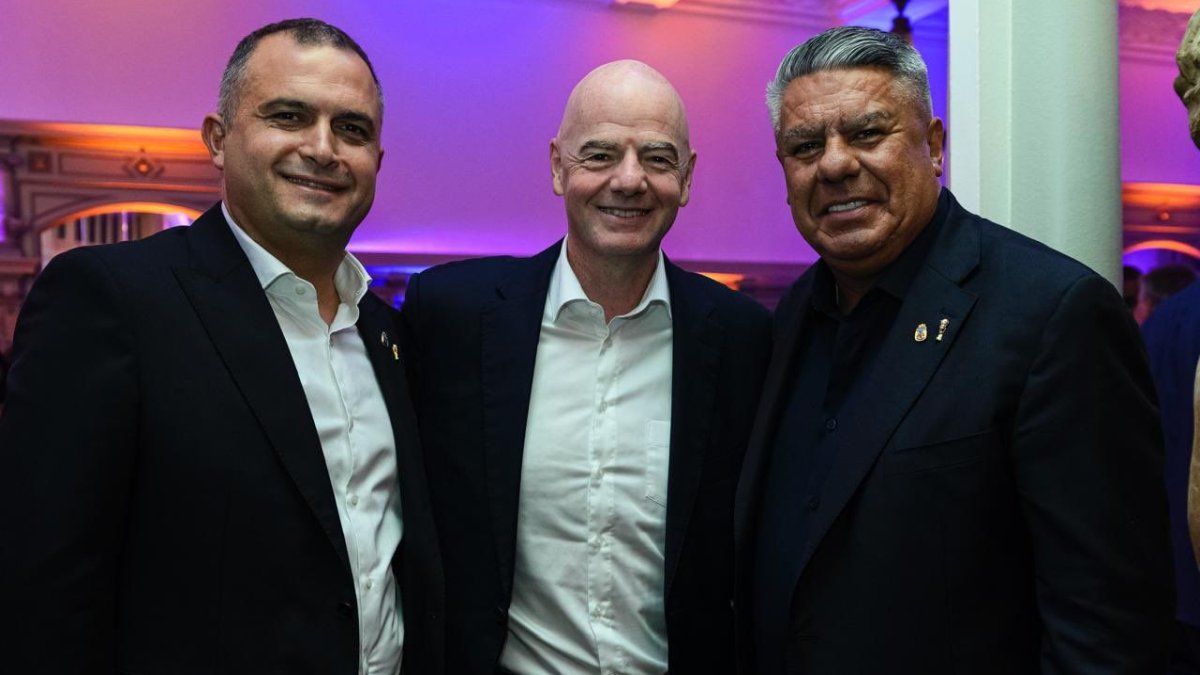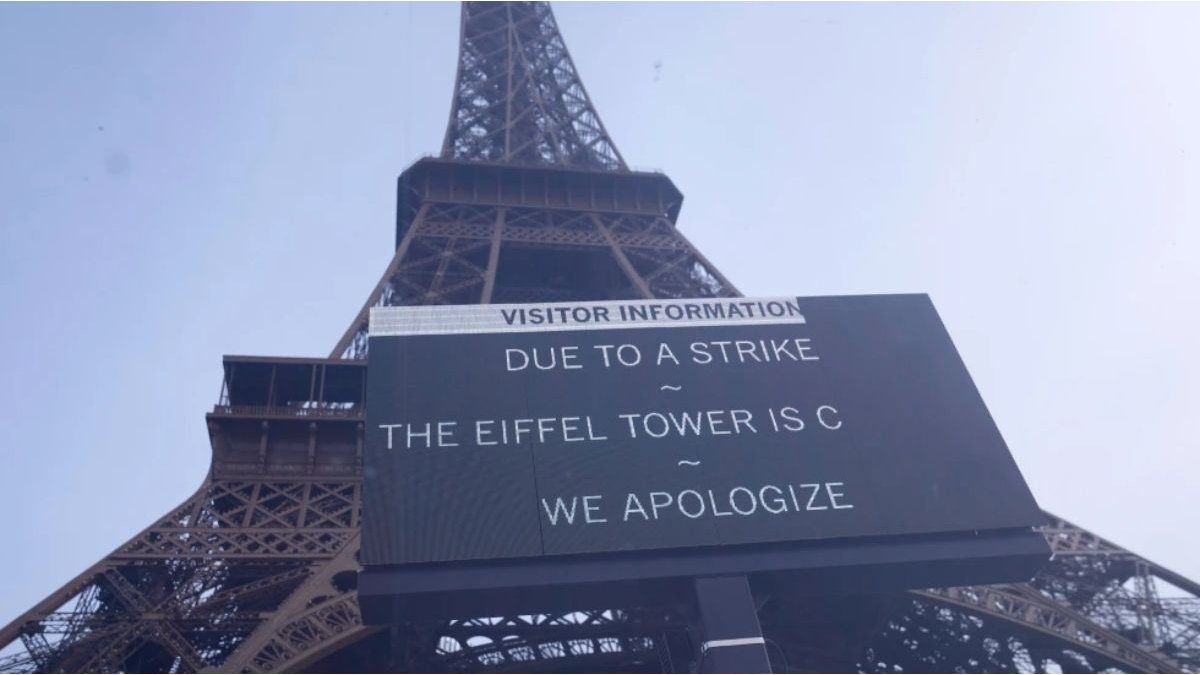It sounds promising: peace mission. But the idea put forward by the Polish Deputy Prime Minister has its pitfalls. Perhaps more worthy of consideration is the suggestion made by a German military expert.
A new word has appeared on the agenda of diplomats in the Ukraine war: NATO peacekeeping mission.
Poland’s deputy head of government and chairman of the ruling Pis party, Jaroslaw Kaczynski, was upset. He was surprisingly present when the three prime ministers of Poland, the Czech Republic and Slovenia set out on their trip to the Ukrainian capital of Kyiv, which is under constant shelling, on Tuesday to pledge their support to President Volodymyr Zelensky.
At the subsequent press conference, Kaczynski brought his idea into play: “I think that a peacekeeping mission from NATO or possibly an even broader international structure is necessary, but such a mission that is also able to defend itself and which will operate on Ukrainian territory.” In his words, he envisions a mission “that works for peace and provides humanitarian aid, but at the same time is protected by the appropriate forces, the armed forces”.
Biden, Scholz, Macron say adamantly: NATO will not wage war against Russia
However, it is more than doubtful whether the western alliance will heed his call. A direct confrontation of NATO troops with Russian forces has always been the red line in possible scenarios for ending the war. This applies to the no-fly zone, which has been loudly talked about for a long time, as well as to the peace mission that is now being demanded. Only on Tuesday evening did Chancellor Olaf Scholz (SPD) explain the West’s position again: “We will not establish no-fly zones over Ukraine. That would mean a direct military confrontation with Russia, with Russian fighter jets. With US President Joe Biden, with France I agree with President Emmanuel Macron and the other allies that there must be no armed conflict between NATO and Russia.”
Nevertheless, the director of the Institute for Security Policy at the University of Kiel, Professor Joachim Krause, outlined in the “Bild” newspaper what such a peace mission could look like: “At the request of the Ukrainian government, troops from NATO or the EU went into unoccupied Advance into parts of Ukraine to form a humanitarian corridor that can also be defended against air strikes.” According to Krause, this would have the effect that Russian troops would be forced to reorganize their forces, which in turn could take the military pressure off the Ukrainians. Unlike in no-fly zones, according to Krause, NATO soldiers would not have to intervene directly in the battle. “They only secure land that has not been conquered by Russia. And that would reduce the flow of refugees,” says Krause.
Peacekeeping missions mostly under the umbrella of the UN
In the past, peacekeeping missions were mostly initiated by the United Nations (so-called “blue helmet missions”). Like all armed operations resolved there, a corresponding resolution by the UN Security Council is a prerequisite for this. However, Russia has veto power there, so that the committee is unlikely to make such an advance.
The security expert Carlo Masala from the Bundeswehr University in Munich also considers the proposal to be more of a jingle of words. in the star-Podcast “Ukraine – the situation” says Masala: “I would classify the idea more in the area of: ‘You have to say something, you have to do something’.”
At the special meeting of NATO defense ministers, the response to Poland’s push for a “peace mission” was rather reserved. The proposal must first be examined in detail, stressed British Defense Minister Ben Wallace. “A peacekeeping mission is difficult while the war is still going on,” said Dutch Defense Minister Kajsa Ollongren. At the earliest, when there is a ceasefire and Russia has withdrawn its troops, NATO can talk about such plans.
The Polish advance shows once again the dilemma in which the West finds itself: On the one hand, there is the urgent desire to support Ukraine as actively as possible. In view of the worsening images of the suffering of the civilian population in Mariupol, Kharkiv, Kyiv and other cities, this is morally understandable and certainly urgently needed. On the other hand, there is the rational responsibility not to allow the war to escalate any further, because the associated nuclear option would jeopardize the survival of all of humanity.
It is this ordeal that the heads of state in the West are currently having to endure and which is clearly getting on everyone’s nerves.
German military expert brings NATO-Russia Council into play
Possibly more promising than a peace mission of any kind is an initiative that the former chairman of the NATO military committee, Harald Kujat, brought into play in an interview with the “Heilbronner Voice”. Despite all efforts, Kujat still sees a “serious lack of diplomacy”. He urgently wants politics to return, says Kujat. “I see a particular duty of NATO, the NATO-Russia Council, which was created precisely for this purpose. This is the place where the Europeans and the Americans, together with Russia, find solutions for the Ukraine war and beyond that for overcoming the of differences of opinion could be found through a reconciliation of interests.” However, the body currently only exists on paper.
Kujat called the call for NATO intervention or no-fly zones irresponsible. “Apart from the fact that there would be no UN mandate for no-fly zones, a no-fly zone would be tantamount to a declaration of war on Russia,” he said. “So that NATO fighter jets are not shot down, Russia’s air defense systems would first have to be switched off. Even if this were to succeed, dogfights would ensue. NATO and Russia would be at war with each other and would be on the brink of a nuclear war.”
swell: with material from DPA, AFP
Source: Stern
David William is a talented author who has made a name for himself in the world of writing. He is a professional author who writes on a wide range of topics, from general interest to opinion news. David is currently working as a writer at 24 hours worlds where he brings his unique perspective and in-depth research to his articles, making them both informative and engaging.




